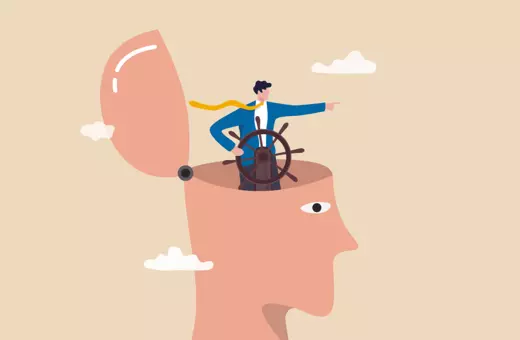Online personality tests are replacing genuine introspection, argues Gerardo Viera. Our need for simple explanations for our behaviours and psychology misses the complexities that shape them. These self-diagnoses can be dangerous, too; they can warp the very thing they attempt to name.
“Are you extroverted?” This question came up with some friends the other day, and someone mentioned a heuristic that is meant to answer the question. If you find social interactions energising, then you’re an extrovert. If you find social interactions draining, then you’re an introvert. After reassuring each other that we didn’t find each other draining, we realised that the simple heuristic couldn’t answer our question. Like most people, we all found some interactions draining while others energising. If we wanted to answer this question, to say something definitive about ourselves, then we would have to turn to another source of evidence. Luckily, a few of us had already taken online tests that located us somewhere between the extremes of introversion and extroversion, so we had our answers.
___
It might seem unusual that we need help from tests to answer questions about our psychology, but it’s not so odd that we should resort to tests to gain this self-knowledge.
___
This sort of scenario, if not the details, should be familiar. With the help of social media, the internet has enabled a personality testing industry (worth more than $2 billion) to flourish. These tests promise to help us understand what sort of people we are and provide insight into why we behave the way we do. They tell us where we sit on the autism spectrum, our Myers-Briggs personality type, whether we’re imagistic thinkers, our risk aversion, our ADHD status, and how we approach romantic relationships.
It might seem unusual that we need help from tests to answer questions about our psychology, but it’s not so odd that we should resort to tests to gain this self-knowledge. It appears relatively effortless to know what we believe or desire, whether we like the taste of coriander or whether we’re happy or sad. Our mental lives seem clear to us through introspection (the supposed mental faculty which monitors our internal mental lives). However, introspection, at least since the work of Descartes in the 17th Century, has been thought to provide us with access to our “occurrent mental states”. These are the thoughts, emotions, and experiences that come into (and out of) consciousness at specific moments in time.
But these online tests don’t tell us about these fleeting mental states. Instead, they tell us something about our personalities and psychological characteristics, including our psychological tendencies that manifest over prolonged periods. For these sorts of phenomena, introspection is an ill-suited tool. In the absence of these tests, we would have to rely on the judgments of others or on intensive self-reflection to learn about our personality traits.
 SUGGESTED READING
Philosophy, Therapy and the Search for Meaning
By Katerina Apostolides
SUGGESTED READING
Philosophy, Therapy and the Search for Meaning
By Katerina Apostolides
There’s another reason why many of us find these tests compelling. Understanding our behaviour is complicated and perplexing. It is puzzling so that many of us will pay experts to help us learn about ourselves. Yet, understanding our personalities and psychological characteristics is crucial since it involves gaining knowledge about seemingly fundamental and stable psychological features that, in turn, allow us to understand, explain, and predict our own behaviours.





















Join the conversation